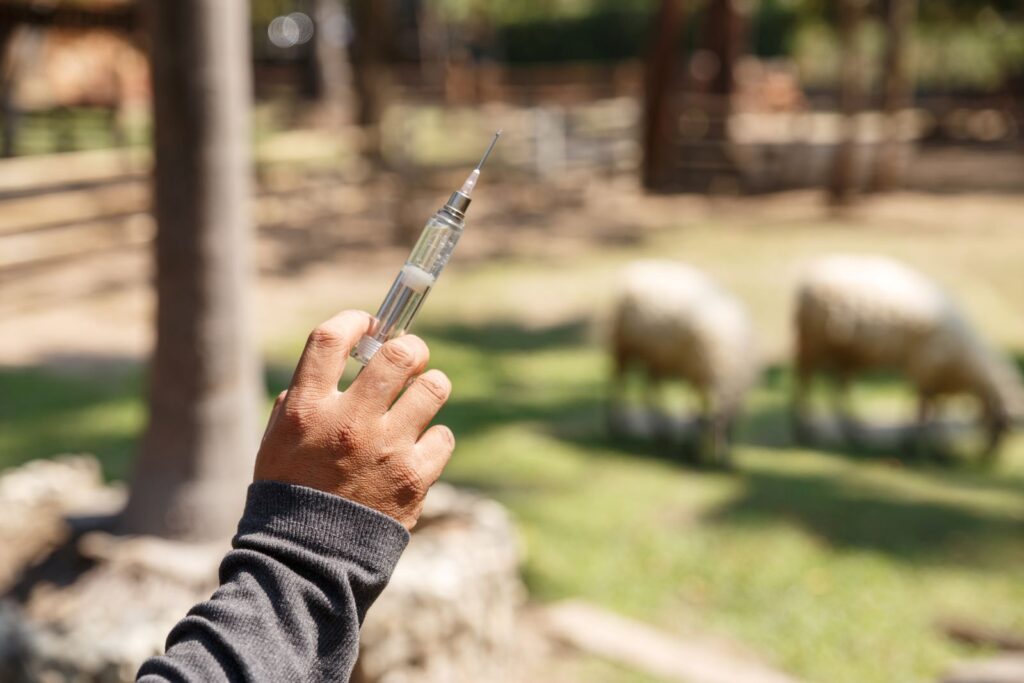Influential livestock vaccine by Scottish scientists claims renewed recognition
16th June 2023
A vaccine developed by Scottish scientists that is considered one of the most significant advances in global livestock health over the last 25 years has been given renewed recognition as part of this year’s RHASS Presidential Initiative.
Developed at the Moredun Institute by Professor Willie Donachie and his research team, the Mannheimia (Pasteurella) haemolytica vaccine made a marked impact on herd and flock health for farmers around the world and is now being celebrated as the penultimate case study for the RHASS Presidents’ Initiative.
The vaccine owes its success to the discovery that, in order to survive, the bacteria requires access to iron. Through laboratory experiments, Professor Donachie identified proteins that were instrumental to the bacteria acquiring iron (Iron Restricted Proteins or IRPs), which represented potential vaccine components.
As a result, he developed a new vaccine that significantly reduced the occurrence of pneumonia in lambs and calves. Although a previous vaccine has existed to protect livestock against the bacteria, it was not effective against all 15 strains of Pasteurella.
Hill livestock farmer, Andrew Houstoun, who farms 1100 breeding ewes and 160 Angus cattle, as well as deer, in Highland Pertshire, said the vaccine is vital for the way he farms and ensuring consistent flock and herd health.
He remarked: “This is essential for our system as we have sheep out on the hill and across a number of other farms and farming extensively like this, we can’t keep a close eye on all the sheep all the time and may miss signs of declining health. We’d be lost without it – it’s easier management for us, it keeps treatment costs and losses down, and productivity up.
“There are a lot of challenges in sheep farming at the moment between rising feed costs, lack of labour and profitability, but one thing we are lucky with is health,” he added.
A significant contribution to sheep and cattle health
Professor Donachie’s fundamental theory behind the vaccine was that if the cells within it could be grown to produce IRPs replicating the conditions in the sheep’s body, it would trigger a protective immune response in the live animal.
“Vaccinations are prevention rather than cure, and it was important to get a vaccine that could cover all strains of P.haemolytica in one,” he pointed out.
“We were fortunate: it was the right people and the right time, and, like all my research and work over 37 years at Moredun, it was the fantastic opportunity to work collaboratively with farmers and scientists to create necessary solutions for real issues.”
Officially launched in 1997 as part of a multivalent vaccine that also immunises against clostridial diseases, the vaccine is recognised worldwide as one of the most significant contributors to sheep and cattle health.
The vaccine was patented and developed commercially in partnership with Hoechst Animal Health. The main royalties from the patent were dedicated to funding future research and development at the institute. A proportion was also shared between the core research team and all the staff working at Moredun at the time.
RHASS Presidents’ Initiative Honorary President, Ian Duncan Millar, a sheep farmer and active ambassador for sheep health research, development and practice as well as Chair of the Moredun Foundation (2012-2020), said:
“This extraordinary step in science, and its ongoing impact 25 years on, is a testament to the importance of continuous scientific research and development to support optimal farming and food production.
“Willie and the Pasteurella team are often unsung heroes, but they’ve contributed enormously to global livestock high health, and exemplified how collaborative science and farming both carve out a legacy and define the future.”
Professor Donachie, who went on to be Deputy Director of Moredun Research Institute and Managing Director of Moredun Scientific, was awarded an OBE in 2016 for services to animal and veterinary biosciences.
To view the full case study, click here.
For more information on this year’s Initiative and to access past and future case studies, please visit: https://rhass.org.uk/presidential-initiative/

